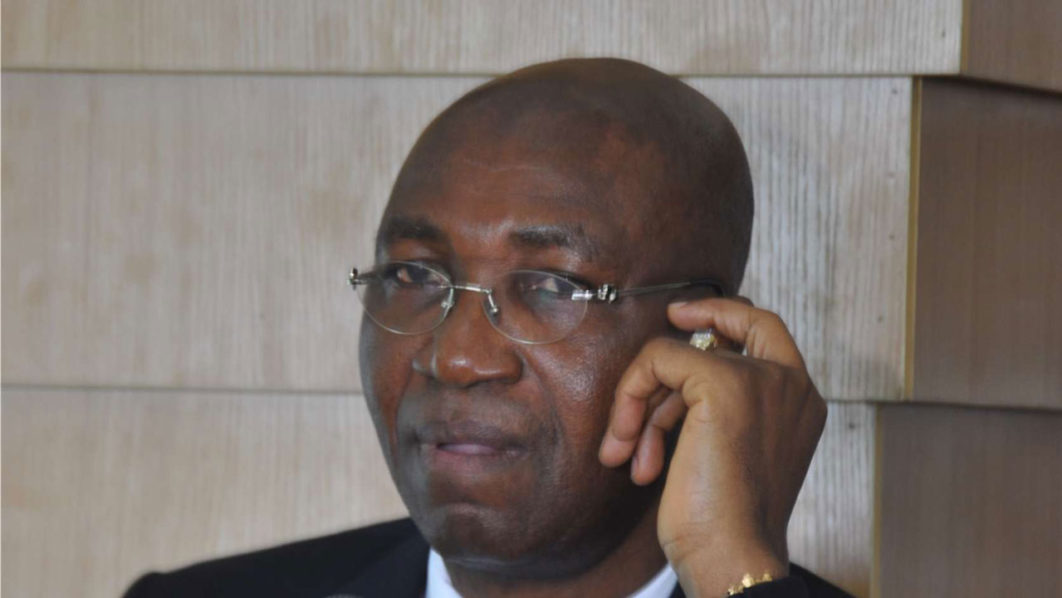Former president of the Nigeria Bar Association (NBA), Chief Wole Olanipekun (SAN), has tasked president Muhammadu Buhari, on access to justice and the concept of the rule of law which seems lacking under the APC led federal government of president Buhari.
Olanipekun who spoke with the Assistant Editor, Law and Foreign Affairs of Gurdian Newspaper, JOSEPH ONYEKWERE on interesting issues bordering on law, the judiciary and the Bar, also said that any governent that cannot protect lives is deemed a failure.
Read Chief Olanipekun reactions to two very salient questions posed to him by the gurdian correspondent:
There is this debate about what national security is. In your own simple explanation, what is national security?
“In law, it is the duty of every government to protect lives and property of its citizens. I must admit that the Constitution makes it the primary duty of government and any government that cannot do that is deemed a failure.
“In doing that, the government must act within the precincts of the rule of law and not arbitrarily. For example, in Nigeria, and for the past ten years or thereabout, the North East Zone has been under the Boko Haram insurgency. Can we, therefore, on the arrest or capture of any Boko Haramist straightaway tie him to the stake and shoot him without charging him to court and let the court of law pronounce his guilt?
“Two wrongs do not make a right. Under our Constitution, it is only the courts of law that have the jurisdiction to pronounce anybody guilty of terrorism, murder, treasury looting, rape, cheating and the likes. Neither the president nor vice-president at the federal level nor the governor or deputy-governor at the state level, is vested with the power to pronounce anybody guilty or fine, reprimand or sentence him.
“I repeat that we should not consign the rule of law to the marines.
How do you view that in relation to the presidential statement on national security?
“The institutions responsible for national security are all creations of the Constitution, which is the grundnorm, and which right from its preamble to the end is rooted in the rule of law.
“When you talk of the police, army and the DSS, are they not created by the Constitution? The offices of Mr. President, Governors, Attorneys-General, Senate President, every member of the National Assembly, every member of State Assemblies are all created by the Constitution. What then is national security outside the ambit of the rule of law? Don’t forget that the Constitution is the supreme law.
“You cannot separate anything, whether in terms of national security or any other thing from the rule of law.
Justice Kayode Eso made the point that even under military tyranny, what they normally do is that they abolish the National Assembly and the State Assemblies. They never abolish the Judiciary. No government all over the world will recognize any government that operates without the Judiciary.
“Who swears in the President? Is it not the Chief Justice of the Federation? Who swears in the Governors? Is it not the Chief Judges of the States? And in the absence of the Chief Judge, the law says, any other judge. It doesn’t say, any other person. You cannot circumvent it. I will not blame the President because he is a soldier by training, but he has speech writers. I don’t know who among them wrote that statement for him.
“If the President were to be a lawyer like me, I would have said something else. Let me put up a defence for the President that he doesn’t understand the nuances of law.
As a trained lawyer, I will define rule of law under different categories, quoting jurists upon jurists, philosophers upon philosophers and my own idea of rule of law. But I won’t contest with Mr. President when it comes to soldiering!
However, without any disrespect to Mr. President or his speech writers, the Supreme Court did not decide in terms of the context of the President’s speech.
Although, the President did not reference any specific decision of the Supreme Court, it would appear as if his speech writers were wrongly alluding to the Asari Dokubo decision of the Supreme Court, and in that decision, the Supreme Court gave a comprehensive exposition of what the rule of law entails.
The speech writers also ought to have advised the President on what the same Supreme Court said in the celebrated case of Governor of Lagos State v. Ojukwu, even during military tyranny, when the apex court came down heavily upon the military government for refusing to obey and comply with court orders, describing the action as executive lawlessness.
My position on the rule of law should not be mischievously interpreted, as if Wole Olanipekun is aiding, abetting or supporting lawlessness or corruption, particularly wanting to defend the alleged corrupt elements in the legal profession, both at the Bar and on the Bench. Far from it.
My position has always been that any lawyer who is found to have compromised or is compromising the administration of justice or the Bench should be dealt with, but in accordance with the rule of law.






Leave a Reply